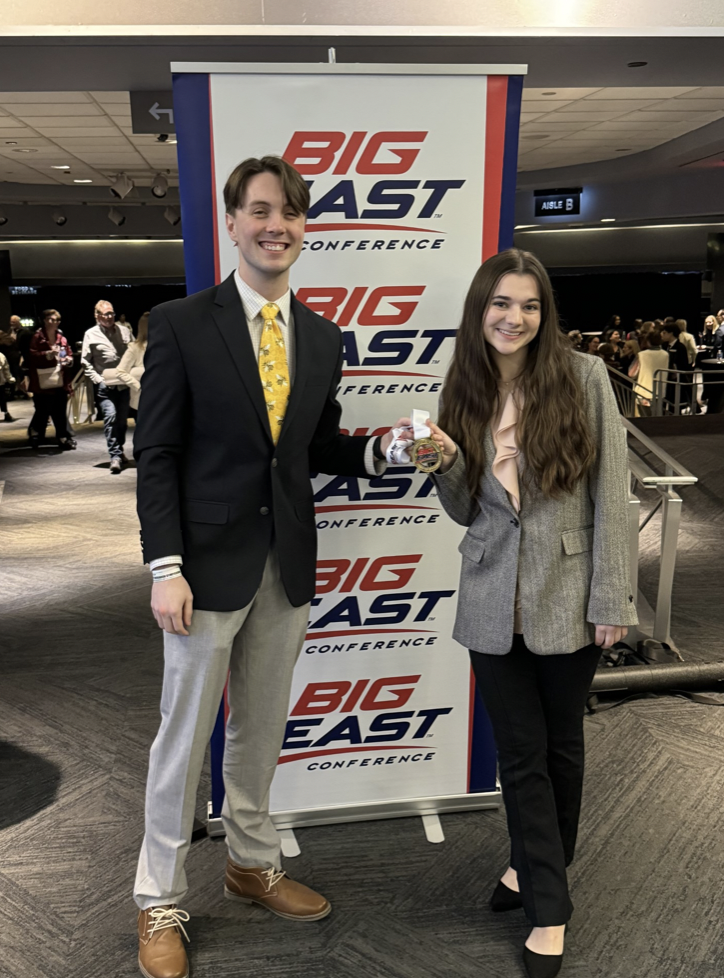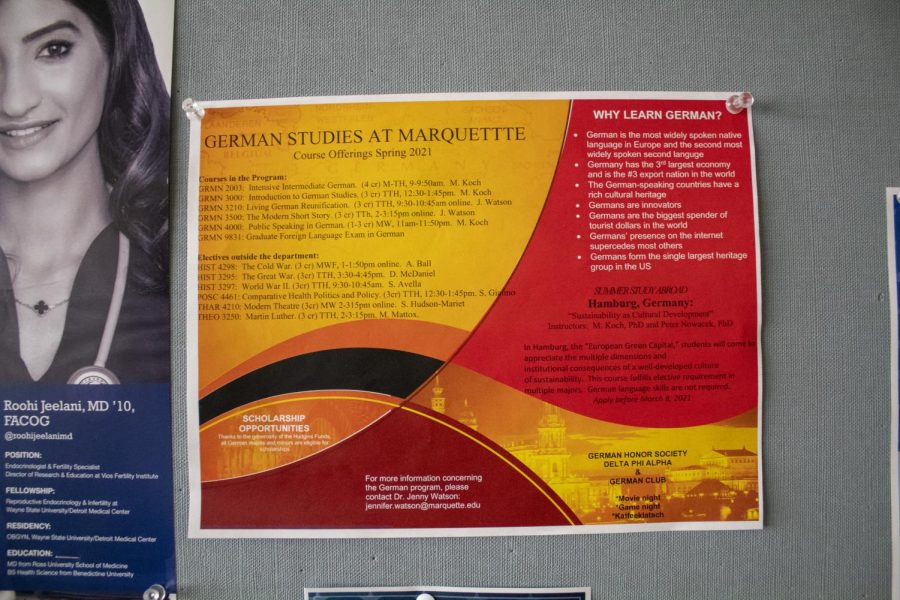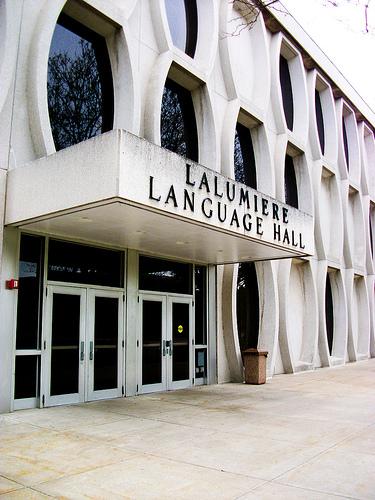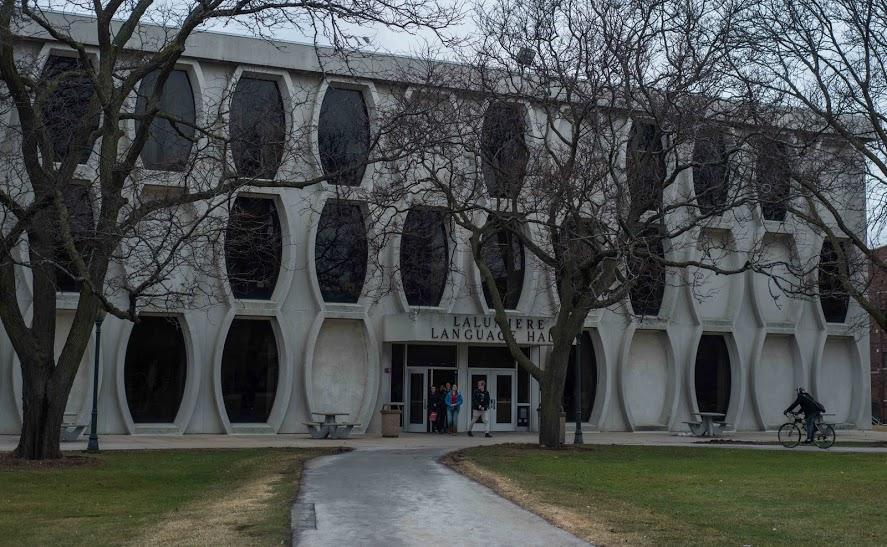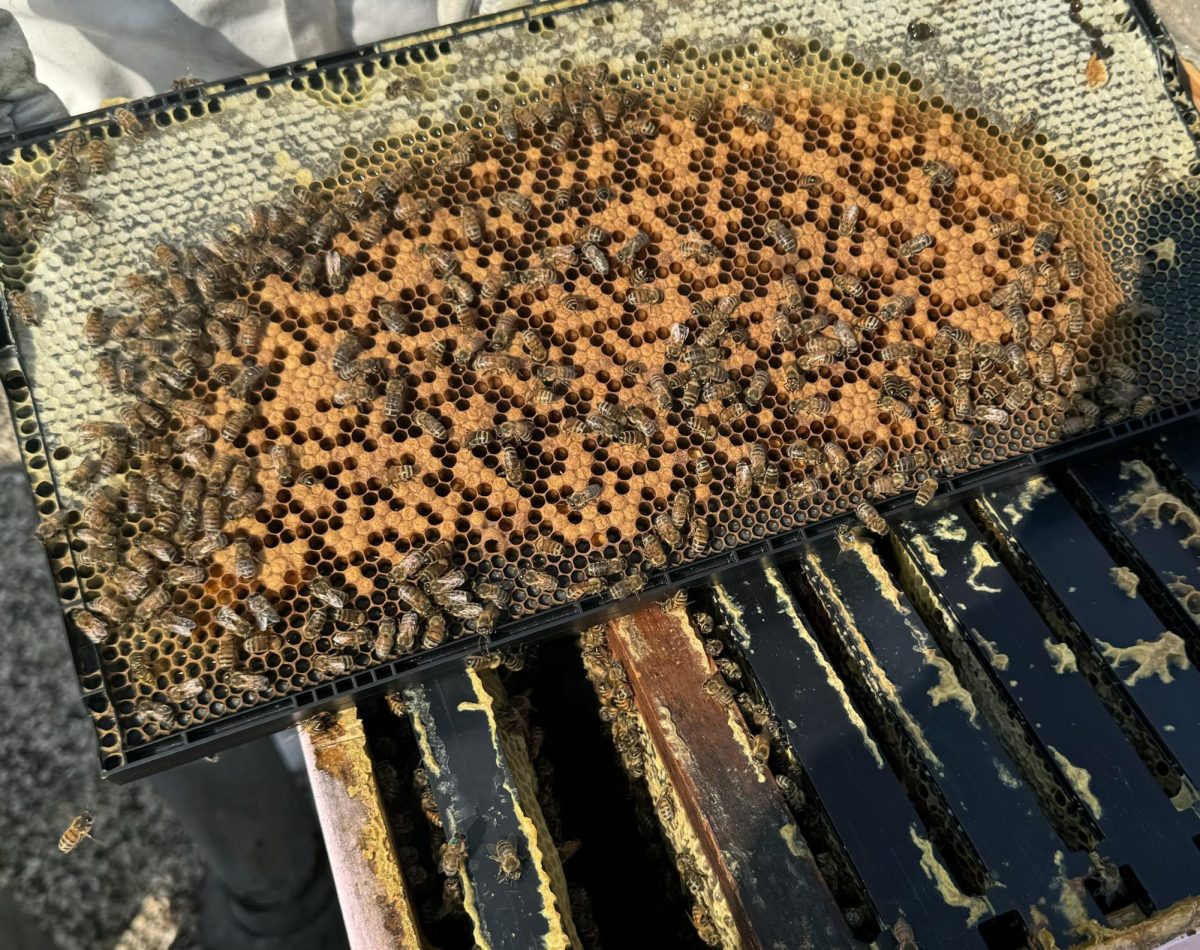Two Marquette University students, Zac Nelson and Elsa Hahn, both seniors in the College of Arts & Sciences, placed first in an undergraduate research symposium. The event took place on Saturday, March 16, and was held at Madison Square Garden in New York City, with a total of 55 groups, consisting of either one or two researchers, from all 11 of the Big East schools.
They were nominated by a professor for their research paper, “Social Information as a Catalyst for Collective Task Performance in Honey Bees,” which examined the behavior of “fanning,” the process in which honey bees flap their wings while standing at a hive entrance to allow cool air to flow in, and how inhibiting the ability to sense temperature impacts this behavior.
After injecting fanner bees with Ruthenium Red (RuR), which prevents the bees from sensing temperature, Hahn and Nelson observed that the bees injected with RuR showed decreasing rates of fanning. This specific paper observed that, when mixed with normal bees, the RuR-injected bees showed an increase in their fanning behavior, and the non-inhibited bees showed a decrease.
After nomination, they went through preliminary rounds to decide if they would be one of the five groups representing Marquette. Then at the competition, Hahn and Nelson presented their posters to judges from across academic backgrounds. However, Nelson said that they didn’t feel confident that they would win.
“We didn’t even think we were gonna place, because everyone else’s research was something like biochemistry, or astronomy, or literal rocket science,” Nelson said. “We were just saying: ‘bees flap their wings sometimes and sometimes they don’t.'”
Hahn said that winning, especially due to the surprise, made the experience that much better. However, Hahn also said that just the experience of interacting with all of the researchers was a great part of the experience.
“[When they announced the winners] was probably the peak of my life,” Hahn said. “But the best part was probably meeting really cool people from Marquette and other schools, all of whom are in doing great things in other fields.”
This project was part of a series of research projects undertaken by the Cook Lab, which both Hahn and Nelson work in. Headed by Chelsea Cook, a professor of Biological Sciences at Marquette, the Cook Lab researches the behaviors of bees, from the effects of gut microbiomes to how B-Vitamins influence the consumption of nutrients. The topic of temperature inhibition was suggested by Cook, but the method and exact execution was largely developed by Hahn and Nelson.
“[Bees] work with each other, they communicate with each other, and they live in these nest-culture with each other,” Cook said. “By studying these complex, but natural, societies, we can understand both how organisms interact with each other and the ways in which we, as humans, interact.”
However, that is not the only focus of the Cook Lab’s research.
For example, Hahn and Nelson’s research spoke on the effects these behaviors would have on bee behaviors in the face of mounting climate change. With milder or more severe seasons, the pollinating and fanning responses could, and have been, significantly more unpredictable, Cook said. Hahn and Nelson said they believed that this combination of goals helped strengthen the research process.
“[Cook’s] experiments are all building blocks into being able to understand [human social behavior] better, but they also give us so much information about other things, like our ideas with climate change,” Nelson said.
Hahn and Nelson both said that Cook’s leadership in the Cook Lab is invaluable, both in and out of the field.
Hahn said that Cook is particularly skilled at making the research opportunities within the lab accessible to people of all different backgrounds. Using funds allocated by research grants, Cook pays both her undergraduate and graduate researchers and during their summer research, where they work in-field with bees.
“[Cook] does a great job of helping people. I never thought like I’d work research jobs at Marquette, since they are volunteer work and I can’t really afford that, but she pays me to work here, which she doesn’t have to do,” Hahn said. “She’s very inclusive of people of all backgrounds. We had a first-generation student in the lab, and she supported him and his goals. She’s first-generation herself, and so she does a good job understanding and helping all of the students.”
Cook said the Cook lab is planning to continue with this string of research, including finding the tipping point for the RuR-injected and normal bees is to increase fanning behaviors. Nelson and Hahn, who both are graduating this year, both plan to continue with their academic research, and said they encourage any interested students to reach out to the Cook Lab if they are interested in research opportunities.
This story was written by Allan Fox. He can be reached at [email protected].

